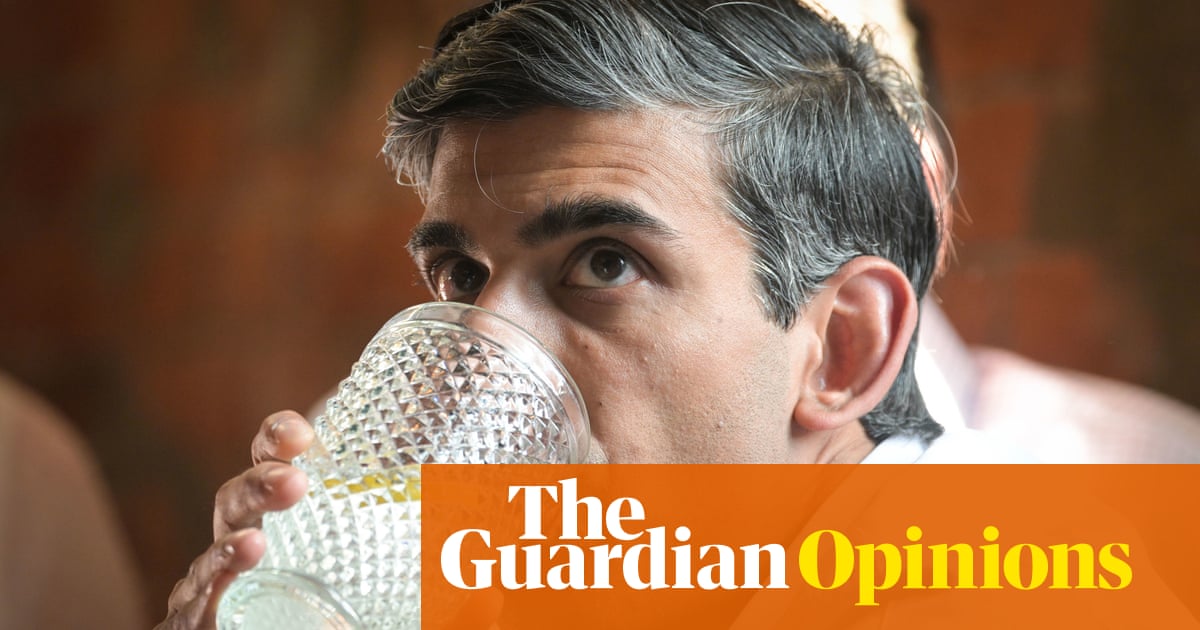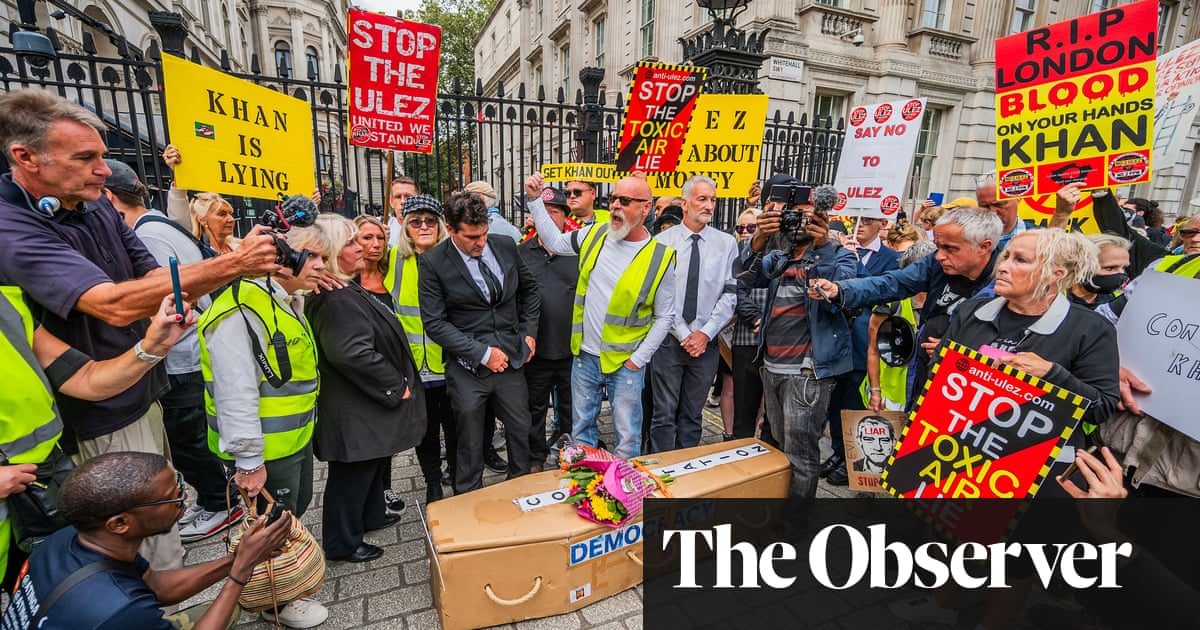
Here comes the destroyer, as David Frost, the Brexit minister, stomps into talks on the Northern Ireland protocol this week with European commission vice-president Maroš Šefčovič. His mission from Boris Johnson is to stir up Brexit trouble, and keep stirring: yes, even at the risk of stirring the darkest shadows of Northern Ireland’s history. Let Brexit never be done if it can keep alive the antagonisms that shot Johnson into No 10.
Johnson may miscalculate the public’s appetite for new Eurostrife: “Get Brexit done” worked with many voters who never wanted to hear the word again. But he may be hoping that EU trade wars against the despots of Brussels can distract voters from his pile-up of crises: shortages of HGV drivers and butchers, port blockages, NHS and social care at tipping point, music and arts crippled for lack of EU visas, soaring energy bills. EU noise might help drown out some of the bad news from next week’s austerity budget.
Ignore any pretence that this bellicose posturing is done to help Northern Ireland or its businesses. “Fuck business,” Johnson said, and he has done just that with his hardest of Brexits: Northern Ireland’s businesses suspect he has even less concern for them. Stephen Kelly, chief executive of Manufacturing NI, which represents 5,500 Northern Irish firms, tells me “not one” of his members has raised the obscure question of the government’s attempt to remove the European court of justice (ECJ) as arbitrator of trade disputes. “Everyone knows a treaty needs legal backup. There have been border problems with the rest of the UK,” he says, but the ECJ is “nothing but a Brexit purity issue”.
Northern Irish businesses have good reason to be alarmed, as the protocol gives many of them an extraordinary opportunity: staying in the single market from which the rest of the UK is excluded. “Scotland would give its right arm for a deal like ours,” Kelly says. Sales of goods to the Irish Republic have risen by 61% in just eight months, he reports, as Irish buyers switch from harder to access English goods. “Manufacturers have brimming order books,” he says.
Nuprint Technologies of Derry sells packaging and labels across both sides of the Irish border, but little to England – until now. Its managing director, Gavin Killeen, says he’s been suddenly inundated with orders from English companies whose suppliers from the EU have cancelled contracts due to delays and paperwork at Channel ports. Nuprint can access materials easily from the EU across the Irish border, and send finished labels to English companies “leaving here at 4pm and arriving at 10am next day”. Killeen’s sales have shot up by 15% in six weeks.
Ask Killeen about Frost, who has threated to trigger article 16, which allows either side to suspend the protocol, and he is appalled at “the trouble he is making. This is all just politics, so take the nonsense out of it.”
Frost came to Newry to meet businesses, among them Deli Lites, a fresh food supplier in Warrenpoint, which sells 70% of its products over the nearby border to the Irish Republic. “We told him business is really thriving, but he wasn’t listening to us. We told him the real problem was political uncertainty,” said its chief executive, Brian Reid.
Delays and checks preventing supplies from Britain are serious. According to Manufacturing NI, a fifth of usual imports from the rest of the UK are being replaced with produce from Northern Ireland or the Irish Republic. Reid’s company has benefited, growing 30% this year by winning contracts from the likes of Asda and Boots in Northern Ireland that were previously supplied from England. Reid fears that Frost might spark an EU trade war, shutting the border between north and south. “Business is really thriving, property prices are shooting up with companies moving here. The last thing we need is Frost threatening to use article 16. Our only risk is from politicians. We didn’t want Brexit, but we need stability now. There’s no problem with the ECJ”. He calls on businesses in Northern Ireland “to speak up louder against the politicians”, but fears the island’s history keeps many silent.
The EU’s latest offer to sweep away 80% of customs and health checks on animal and plant products and medicines entering Northern Ireland will fix many of the border difficulties. But Johnson has sent Frost in with a hand grenade to demand the impossible – removing the ECJ from the deal they signed and praised. As a legal pretext for triggering article 16, the courts – our courts – would throw it out in judicial review, according to the former justice secretary David Gauke. The EU could retaliate with tariffs on UK imports or by aborting the entire trade and cooperation deal. Who would be damaged most – the lonely UK or the EU26?
Invest NI reports an unprecedented 50 live inquiries from companies wanting to relocate to Northern Ireland to join the EU single market. But hesitancy remains. Ask companies that might consider shifting to there and their one fear is that Johnson and Frost will use and abuse the country for their own nefarious political ends, to keep Brexit on the boil. Already Johnson has encouraged unionist unrest, with the DUP leader, Jeffrey Donaldson, threatening to pull down the power-sharing government.
Frost ended his jingoistic party conference speech with ludicrous bombast: “The long bad dream of our EU membership is over. The British renaissance has begun.” Northern Ireland knows all about nightmares, but Johnson thinks any price is worth paying (by others) to keep him in office.
The Labour leader, Keir Starmer, promised policies to “make Brexit work” in his conference speech, while Johnson’s strange mission is to make his own deal fail. It’s time for Labour to shake off old remoaner phobias and turn its full firepower on every aspect of Johnson’s Brexit disaster.
Polly Toynbee is a Guardian columnist












